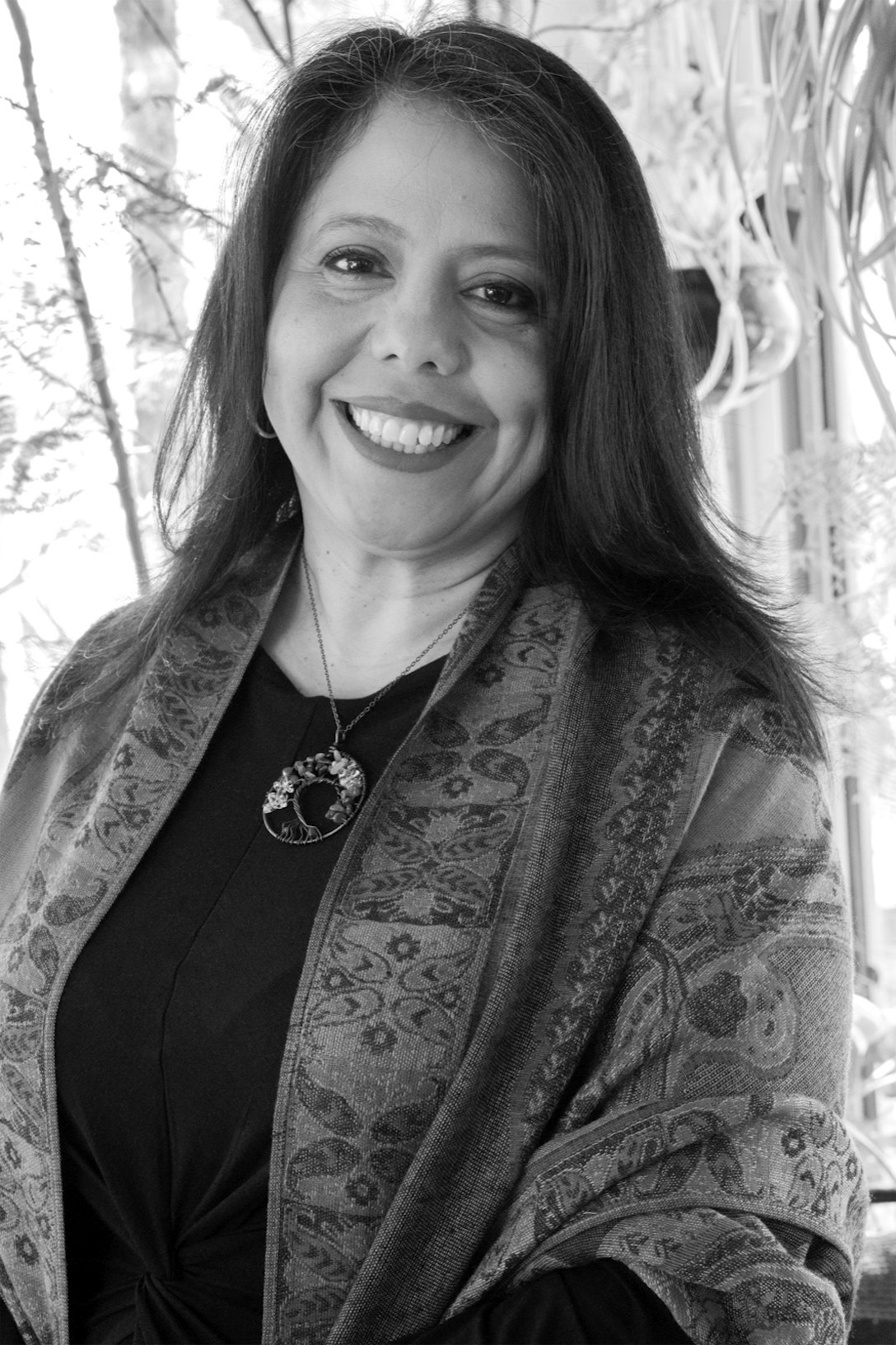
Karina Barillas
Louisville, Kentucky, USA
I am originally from Guatemala. I was born in 1970 and grew up in one of the poorest neighbourhoods, a barillocajito, what you’d call in English a ghetto: Sonatres Guatemala City.
I survived a father who was very abusive to my mother, to my siblings, and to me. We were also sexually victimized by him. For me, growing up was a challenge because there was always something inside telling me that I didn’t belong to that place. I would go to the top of the house where we hung clothing after we washed them and I’d look at the horizon and think, “You know? This is not my place. My place is somewhere out there beyond the horizon.” And I would always dream, literally I would have dreams of flying, dreams of belonging somewhere else.
My mother was in this horrible abusive relationship and there were no cultural or religious opportunities for her to leave him. She was trapped in that relationship. She was not equipped, she didn’t have the tools to be my mother. A mother of a girl like me who was, as I didn’t know back then, a feminist, outspoken, someone who went against anything that would diminish my condition as a human. When I was little, people asked me what I wanted to be when I grew up and I would say, “I want to be a man.” Of course, you know, those conservative Guatemalans were like, “Oh my God! She doesn’t like boys!” But it was not about that. When people would ask me why I wanted to be a man, I would say, “Because I want to do whatever I want and to make any choice I want.”
My brother, may he rest in peace, was murdered back in 1990. He was able to go outside and play with his friends and do all these things that I was not allowed to do. I was supposed to sit like a lady, talk like a lady, not being seen, not heard. But the thing that made it complex was that my mom and her message to me in the little moment that she had to give me, told me that my life was going to be different from hers. I knew I was going to have a different life, so my chore was to study. That was my chore—different from those who had to do the dishes, or mop.. My chore was to study.
That was her gift to me. It allowed me to start exploring, start growing. I had a very curious mind. I was in a Catholic school run by very feminist nuns, who taught liberation theology. We were in the middle of the war in Guatemala so they were not supposed to teach that. I didn’t know that until I came to the United States. How feminist that liberation theology was that I was being raised on!
So, I was given all this, to love and to serve others. The nuns gave me the opportunity and the space to question, as well as to be guided toward my biggest purpose, and to believe that I could create whatever life I wanted to choose. That permission was very confusing, and as I tell you the story, it makes me want to weep because I had a combination of horrible abuse and emotional neglect, combined with the message of “You have the strength!” Those nuns, you know, just saw me. I don’t know if they saw my pain, but they saw the talent. They saw my hunger to be seen, to do things, to explore, to grow, and so they grabbed me and pushed me to be the best version of myself.
The Louisvillians
This is one of the ten portraits of Louisvillians was curated by the Muhammad Ali Center in collaboration with several partner and community organizations to reflect the diverse fabric of our city.